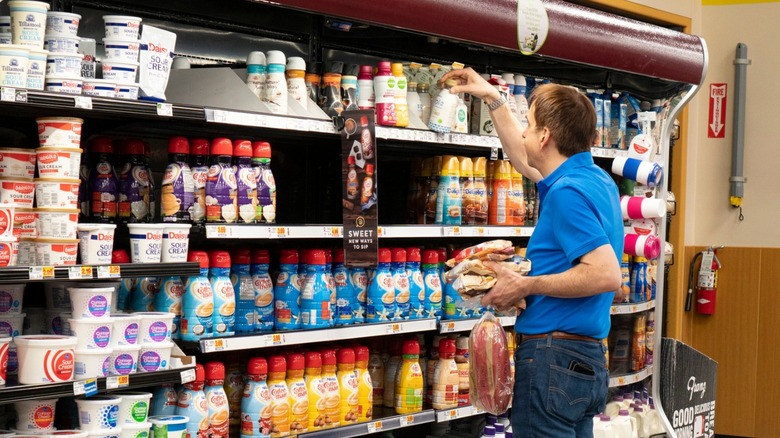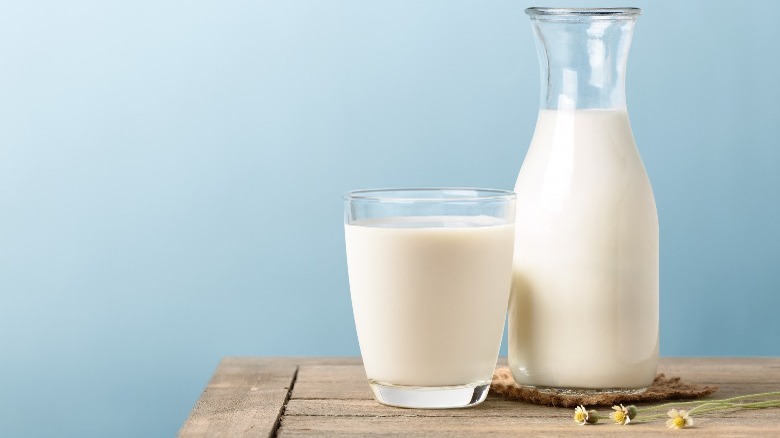Why Kroger Spent $70 Million For A New Line Of Dairy Products
Kroger's dairy sections are full of options regardless of whether you're seeking butter, coffee creamer, or cottage cheese. The company isn't content to milk its current place as one of the head cheeses in the U.S. grocer industry, though. On the contrary, it's putting some serious dollars behind building its selection of dairy products even further.
Statista shows that Kroger was the second-leading grocer in the U.S. in 2017 and Zacks Equity Research reports that Kroger has gained more share of the market in the past year. Zacks Equity Research credits investments for improving "freshness and quality" along with launches of new items as reasons why sales have gone up 4.1% year-over-year.
Kroger has devoted some of that investment into diversifying its dairy selection with some new science behind the forthcoming products. While Kroger isn't trying to build a better cow, the grocer is taking aim at making cows' legacies last longer.
Dairy you can carry anywhere
As Kroger has focused on modernizing its technology to improve its business, that philosophy has carried over to a $70 million investment in a new dairy line. According to Supermarket News, Kroger is spending that chunk of change to make a milk that won't go chunky.
Kroger is building a 35,000-square foot production facility in Ohio that will employ over 150 people and produce aseptic dairy products, as Supermarket News reveals. Aseptic dairy products are a novel approach to keeping dairy on the shelves for consumers for longer periods of time.
Aseptic simply means free from bacteria. The American Dairy Association explains that an advantage of this new ultra-high temperature pasteurization process is that the product needs no refrigeration as long as it remains sealed. The high temps kill off all bacteria in the milk and the product gets an air-tight seal immediately, meaning it won't spoil (via the American Dairy Association).
For anyone wondering whether killing off all bacteria in the milk will also remove the milk's desirable nutrients, the American Dairy Association says that the sterile process doesn't affect the milk's nutritional value. It simply makes the dairy products shelf-stable.
Supermarket News says Kroger plans to offer new aseptic half and half, heavy whipping cream, and coffee creamers with the new aseptic technology. While the cows producing the milk will still age, their milk could survive in Kroger stores for a long time thanks to this $70 million investment.

